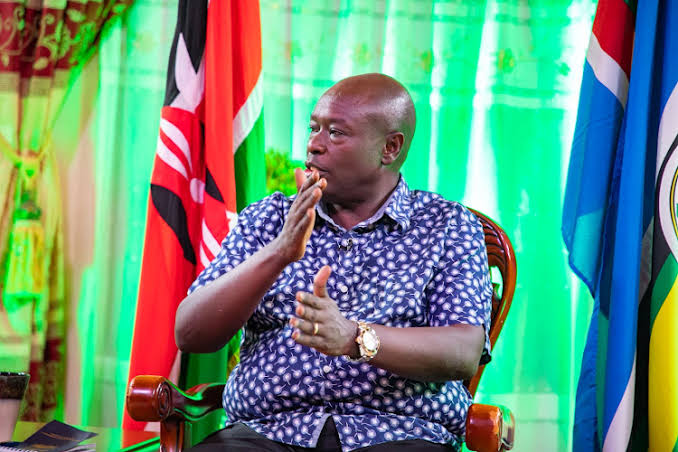The budget allocation for the purchase of new cars for Kenya’s top three government offices has shot up eight times in the latest changes to the spending plan that also benefited retired President Uhuru Kenyatta.
The offices of President William Ruto, his deputy Rigathi Gachagua and Prime Cabinet Secretary Musalia Mudavadi have been allocated Sh802.2 million to buy motor vehicles in the current financial year, a significant increase from what had been allocated as Kenyans come to terms with a bloated government that has scuttled Kenya Kwanza’s austerity measures.

In the budget estimates for the Financial Year 2022/23, the three offices had been allocated Sh100.8 million, though the office of the Prime Cabinet Secretary had not been catered for. However, the exclusion of the Prime CS only cuts the expenditure by 10 percent, or Sh80 million.
The biggest beneficiary among the three is Mr Gachagua whose office was given Sh290.8 million for the vehicles, an increase of Sh200 million from Sh90.8 million that had previously been allocated by former Treasury Cabinet Secretary Ukur Yatani.
In total, the budget for the purchase of new cars for all the State bodies in the current financial year ending June more than doubled to Sh2.06 billion from Sh810.3 million that had been allocated in the original budget, with the three offices accounting for more than 40 percent of the budget.
The three top offices got more money for new cars than the Office of Inspector General of Police, which was allocated Sh574 million to move policemen protecting more than 50 million Kenyans.
This comes days after Mr Yatani publicly took on Mr Gachagua in a rare budget spat pitting a previous Finance minister with an incoming high-ranking government official, for requesting an additional Sh300 million to purchase a fleet of cars, a request that was partly turned down due to cash shortfalls.
The Office of the President and Cabinet Secretaries also received an additional Sh154 million for cars, while retired President Kenyatta has been allocated Sh140 million for a fleet of cars in his retirement.
State House Nairobi, which had initially been allocated only Sh10 million, was added Sh35 million in the latest changes. The car budget is expected to further go up as Dr Ruto factors in the vehicles needed by the 50 newly appointed chief administrative secretaries.
President Ruto has said he will cut extravagance and wasteful spending as he moves to contain the country’s debt appetite that has left the country with limited fiscal space with Kenya’s credit rating outlook being downgraded by various global agencies.
During the opening of the 13th Parliament on September 29, 2022, President Ruto said there was a need to live within means and never to borrow to finance recurrent expenditure.
“Over the next three years, we must reverse this and go back to the situation where the government contributes to the national savings effort by keeping recurrent expenditure below revenue,” the President said.
“To this end, I have instructed the National Treasury to work with ministries to find savings of Sh300 billion in this year’s budget. Next year, we will bring it further down so that, by the third year, we have a recurrent budget surplus,” said Dr Ruto.
Instead of the recurrent expenditure — or the day-to-day expenses which include buying cars— reducing as instructed by Dr Ruto, it went up by Sh87.6 billion to Sh1.27 trillion, bringing into question the commitment of the new administration to keep its promise of cutting borrowing.
John Mutua, Programmes Coordinator at the Institute of Economic Affairs (IEA), a think-tank, noted that increased allocation for the purchase of cars should not be happening if the country wants to remain on the fiscal consolidation path.
“This should not be expected at this point in time,” said Mr Mutua, adding that, however, the government needs to give a justification for this, giving a breakdown of the kind of cars they will buy and their capacities.
The purchase of cars is one of the major drivers of recurrent expenditure, as it also comes with the additional costs of fuel and maintenance.
Different administrations have implemented different strategies of trying to keep down car expenses, including vehicle leases, which keeps changing from one government to the other.
When he was the Finance Minister, Mr Kenyatta in 2009 came up with the plan of purchasing Volkswagen Passat cars which he said were cheaper in price and maintenance and more efficient compared to the Mercedes Benz E200, which was being replaced.



















